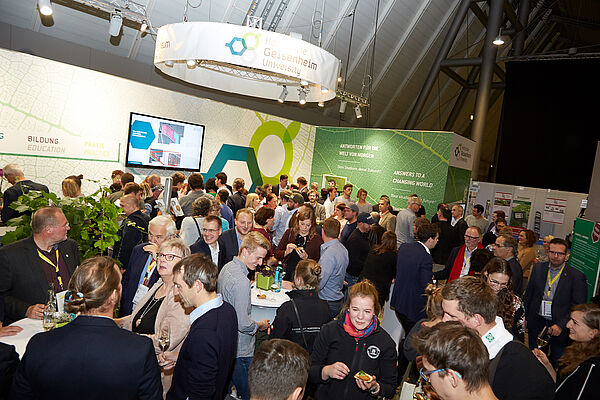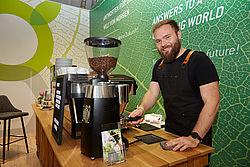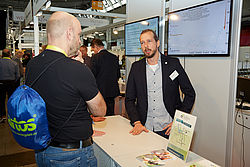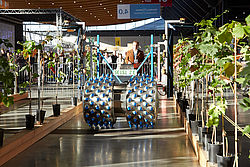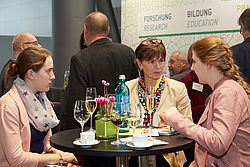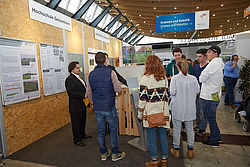The wine of 2050 – what will it taste like? And what about the consequences of the increasing concentration of carbon dioxide in our atmosphere on plants, soils, microorganisms and insects and thus on vines and horticultural cultures? These are the questions scientists are trying to answer. This year’s INTERVITIS INTERFRUCTA HORTITECHNICA (4th to 6th November 2018) in Stuttgart offered visitors the possibility to gain an insight into the diverse research and practice-oriented projects of Hochschule Geisenheim University. Visitors could benefit from "ask the expert sessions" and obtain information on the University’s degree programs. Many of Geisenheim’s alumni also came for the fair’s business evening.
While enjoying a cup of Geisenheim coffee and some chocolate, guests could network and obtain information on digitalization and its application possibilities in soil analysis, watering control systems, fermentation control and marketing.
Another Geisenheim highlight at the fair was the stand in the tasting area organized by the department of enology and general and ecological viticulture and the technology department stand in hall 10. The team around Prof Dr. Hans-Peter Schwarz presented the Agronator, a drone with a diameter of 4.60 meters, built to improve the use of plant protection products in parts of the vineyards where access is difficult.
The special show "drones and robotics" led by Prof. Dr. Schwarz and the machine presentation in hall 8 by the head of the department of technology together with Bernhard Gaubatz from the department of general and ecological viticulture were both extremely popular.
Among other machines, a vineyard tractor was on display. The tractor has a special steering, tested in Geisenheim. The steering responds to ultrasound and GPS and is now – also thanks to award-winning Bachelor theses – ready to be put on the market by Reichhardt/Hungen.
Visitors were especially keen on tasting the experimental wines from various Geisenheim projects: The department of general and ecological viticulture offered wines that were produced by experimenting with adaption strategies, management systems and digitalization. Experimental wines by the department of enology include must- and wine treatment and new storage/transport strategies. The 63. international DWV (German Winegrower’s association) congress and the DLG (German association of agriculture) in hall 10 gave Geisenheim experts the opportunity to give lectures on various topics – a perfect balance between Geisenheim’s practice-oriented and research-based approach.

